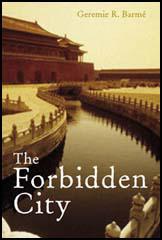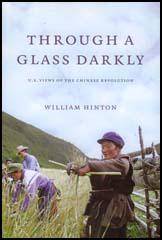Spartacus Review
Volume 14: 10th March, 2008
China

Title: The Forbidden City
Author: Geremie R. Barme
Editor:
Publisher: Profile
Price: £15.99
Bookshop: Amazon
Spartacus Website: China
Category:
It was built by a Ming Emperor in our fifteenth century – to be a terrestrial reflection of the celestial realm of the Jade Emperor. Destroyed and rebuilt on an even more splendid scale by the final ManchuQuing Emperors, it consists of a series of courtyards approached by gates (chief among them Tianan Men) and an imperial way. This book brilliantly reconstructs the life that went on in those ancestral temples, lacquered chambers and vermilion halls both in the imperial heyday and in the decadent decline under the Dowager Empress. Fifty years ago Mao considered razing all to the ground. Now it is a Wonder of the World.

Title: Through a Glass Darkly
Author: William Hinton
Editor:
Publisher: Monthly Review Press
Price: £14.95
Bookshop: Amazon
Spartacus Website: China
Category:
"Through a Glass Darkly" was William Hinton's last book. It draws on a lifetime of immersion in Chinese politics and society, beginning with the seven years he spent in China, working mainly in agriculture and land reform, until 1953. On his return to the United States in that year, Hinton first encountered the distortions and misrepresentations of the Chinese Revolution that he examines in this book. Hinton defends the achievements of the Chinese Revolution during the three decades from 1948 to 1979 from its detractors both in the United States and, since 1979, in China itself. His starting point is the work of John K. Fairbank, for many years a professor at Harvard and the "dean of China Studies" in the United States. But it is not limited to critique. Instead, Hinton's critique of Fairbank leads into a wide-ranging examination of the nature of the transformation attempted in China, its social and political bases, and the causes and consequences of its policies in land reform, agriculture, combating famine, popular culture, industrialization, morality, and much else besides. Moving from large questions to concrete details, often drawn from his own experiences, Hinton brings everyday life in revolutionary China graphically to life. In a time when the distorted views first developed by U.S. critics of the Chinese Revolution are often propagated by the new Chinese elite themselves, "Through a Glass Darkly" has more than just historical relevance. For anyone wishing to understand present-day rivalries between the United States and China, Hinton shows how these began. This is a fitting completion of the work of a great scholar and revolutionary.
